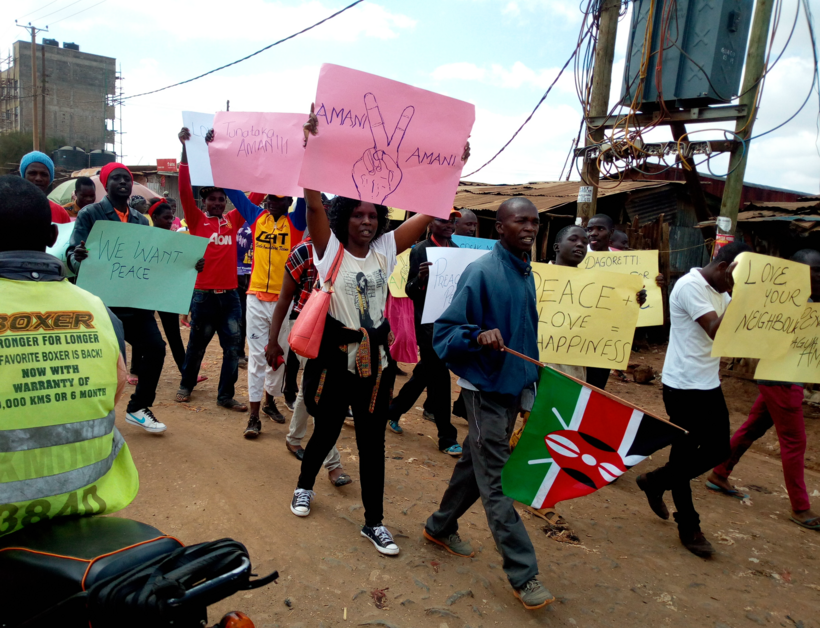Healing injustice with peace in Nairobi
Betty Atieno, a Turning the Tide community organiser in Kenya, reflects on six years of peace trainings informed by Quaker values

In 2011, I became the Programme Officer of Turning the Tide Kenya. Turning the Tide is a social action training programme that sets out to counteract injustice through nonviolent means, and the groups we represent had high expectations of me. I felt outweighed when I thought about how new I was to the role – but my colleagues, Hezron Masitsa and Bernard Agona, supported me in sharing my passion for peace with those who had lost hope of retaining their humanity.
How violence damages everyone
My years with Turning the Tide have taught me that social injustice is a disease that affects everyone in society. At every level, rich, poor and in-between. The only differences between these groups is how they respond: those that live in posh estates may dislike inequality, but because their basic needs are being met, they do not speak out. Many pretend to be okay while they are indirectly affected by the economic status of the country. Yet if their neighbourhood burns they ar affected; if their businesses are looted, they are affected. They just don't speak! They are more passive!
Meanwhile many people who can only afford to live in slum accommodation think the only way they will be heard is through destruction. Properties get looted and burnt; people kill each other. These are the actions that get attention in the mainstream media and on social media, and this makes people feel as if they have been heard. But the news rarely explains why people turn to violence. Injustice continues and their needs remain unanswered.
A nonviolent approach
We've found that Turning the Tide trainings help draw people out on what's going wrong, and what will set things right. The workshops are closed forums, allowing participants to speak openly about their issues and come up with solutions together. We give unheard people a platform – and it would be safe to say that our trainings have unveiled a lot across the board! I call the programme an eye-opener.
I realise now that it is normal to feel fear in facing up to authority, but when we approach what we fear with courage, focus and understanding, our expectations are more likely to be met. The programme has made me who I am today. I've felt people's joy and pain. I learned to express my extrovert side, and realise that it is virtually impossible to please everyone. I have embraced that fact and I acknowledge my shortcomings. I am not alone in being transformed by this work. I count the number of lives changed so far, and it gives something to wake up to everyday, something to smile about as I take a bus to work.
The work of a lifetime
From the vantage point of the present, I have come to believe that my mission in life is peacebuilding. I have not and will never be able to see the success of this programme in isolation. My hope is that nonviolent methods are integrated into our communities, into our society as a whole. There is power in numbers! And today those numbers include everyone who has ever been part of a workshop, plus the trainers, the Community Resource Persons, and my fellow TTT colleagues. Together we build peace.
Over the past six years I've been inspired by the young resourceful people who have travelled this path with me. My greatest appreciation goes out to Quaker Peace & Social Witness who support this work in Kenya. And I particularly thank Stephen Whiting and Annie Turnbull, for the knowledge and skills they shared with me at the beginning of my time in Nairobi.